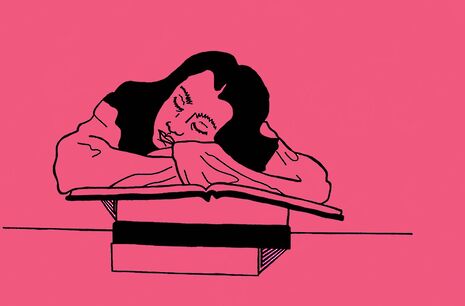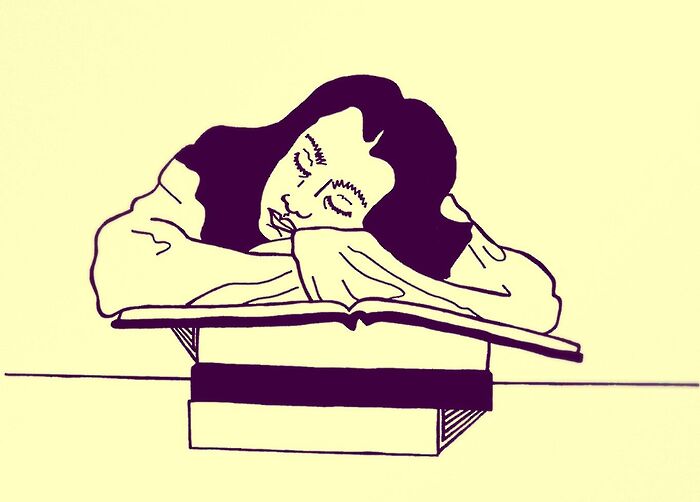More than just a sleepless night
Sleep and mental health walk hand in hand, argues George Milner

Content note: this article contains discussion of issues surrounding mental illness
Treatment of mental health disorders has a come a long way from the era of asylums and lobotomies. Yet it still has a considerable way to go, and has recently come under fire over questions surrounding efficacy and absence of notable progress. Better understanding of a wide range of factors impacting mental health is crucial to improving both treatment and prevention. One of these factors is sleep.
There has long been acknowledgement of a relationship between sleep and mental health, though with a firm view that issues pertaining to sleep were merely a consequence of conditions such as depression and anxiety. However, evidence now increasingly suggests strong bi-directionality in the relationship between sleep quality and mental health.
Close to a third of the UK population is estimated to suffer from some degree of insomnia. Focus only on those suffering from depression, and this figure rises to three quarters, making its role in mental health disorders far from trivial.
"Controlling sleep disruption could decrease inflammation, reversing susceptibility to depression"
“Having insomnia doubles your chances of developing depression and we now know that if you treat the insomnia it reduces depression”, reports Daniel Freeman of the University of Oxford. Furthermore, a study at multiple UK universities concluded that sleep treatment for students led to improvements in the cases of “depression in particular, but also anxiety, psychological wellbeing, nightmares, and perceived functioning”. Although there is currently a concerted effort to reduce the stigma surrounding mental health, the cold reality remains that many are reluctant to reach out for assistance, especially early on in the development of conditions. Improving mental health via improving sleep quality may offer a more widely embraced route to both safeguarding mental health and earlier recognition of conditions. In addition, it has been shown that early intervention into poor sleep quality can not only reduce the severity of mental health issues, but also reduce the development of such issues in the first place.
So why does treating insomnia improve mental health? One hypothesis stems from evidence that inflammation is associated with both sleep deprivation and depression. Controlling sleep disruption could in turn decrease inflammation which in turn can decrease depressive symptoms, also reversing susceptibility to depression. The causal role of inflammation in depression has been championed by Edward Bullmore, Professor of Psychiatry at Cambridge University, in his recent book The Inflamed Mind: a radical new approach to depression.
"Sleep deprivation has also been successfully used as a rapid-onset treatment for depression"
Aside from its close association with mental health disorders, sleep quality has further roles to play in mental health. Most are aware, due to their own experience, of the effects of sleep deprivation on mood. A paper in the Journal of Neuroscience explored how sleep deprivation can increase emotional reactivity, manifesting as “increased anxiety and stress elicited by seemingly minor triggers”. Put simply, sleep deprivation significantly increases irritability, anger and aggression, even in response to otherwise neutral stimuli. To make matters worse, loss of emotional stability can feed right back into this cycle, leading to escalating stress and confrontation which can further impair sleep quality.
On the other hand, increased emotional reactivity can also take the form of more withdrawing responses and feelings of sadness. Aside from affecting enjoyment of day to day life, this can have consequences far beyond the period of sleep deprivation itself. It can place a strain on relationships, and entrench patterns of negative behaviour, damaging long-term mental health.
Somewhat counterintuitively, however, sleep deprivation has also been successfully used as a rapid-onset treatment for depression. In this case, patients are intentionally kept awake for an entire night or longer. This could be especially relevant for treating depression in bipolar disorder, for which the efficacy of antidepressants is particularly contentious, alongside other forms of depression.
"Better understanding of the relationship between sleep and mental health should play an important role in future treatment"
The rapid onset antidepressant action of sleep deprivation also shares similarities with the novel antidepressant properties of ketamine, a drug well-known in recreational use yet less well-known for its important roles as an anaesthetic, one of the most widely used in the world, and in pain management. The drug induces similar changes in activity in the sleeping brain as those that occur in recovery sleep following sleep deprivation therapy. It is thought that these changes in brain activity could indicate changes in connectivity in the brain which underpin the efficacy of both treatments of depression. On the other hand, the antidepressant effects of ketamine are typically sustained for 1-2 weeks in responsive patients whereas those treated with sleep deprivation frequently relapse far sooner following recovery sleep.
The rapid antidepressant action of ketamine and sleep deprivation therapy sets them aside from conventional antidepressants which normally only gain effect weeks after treatment initiation. This can prevent continued suffering from mental illness and increase patients’ willingness to adhere to treatment regimes. Development of rapidly acting antidepressants could not only give clinicians an extra tool in controlling treatment-resistant depression, but also a route to control depressive symptoms more effectively at a practical level.
Overall, better understanding of the relationship between sleep and mental health should play an important role in future treatment and mitigation of mental health disorders. Further still, recognition of the important role of sleep in emotional health could serve to improve general mental wellbeing in an even wider audience. Given the high prevalence of both sleep deprivation and mental health disorders in the population as whole, effective approaches linking the two, pharmacological or not, should be welcomed.
 News / SU reluctantly registers controversial women’s soc18 December 2025
News / SU reluctantly registers controversial women’s soc18 December 2025 News / CUP announces funding scheme for under-represented academics19 December 2025
News / CUP announces funding scheme for under-represented academics19 December 2025 Features / Should I stay or should I go? Cambridge students and alumni reflect on how their memories stay with them15 December 2025
Features / Should I stay or should I go? Cambridge students and alumni reflect on how their memories stay with them15 December 2025 News / Cambridge welcomes UK rejoining the Erasmus scheme20 December 2025
News / Cambridge welcomes UK rejoining the Erasmus scheme20 December 2025 Science / ‘Women just get it more’: autoimmunity and the gender bias in research19 December 2025
Science / ‘Women just get it more’: autoimmunity and the gender bias in research19 December 2025










